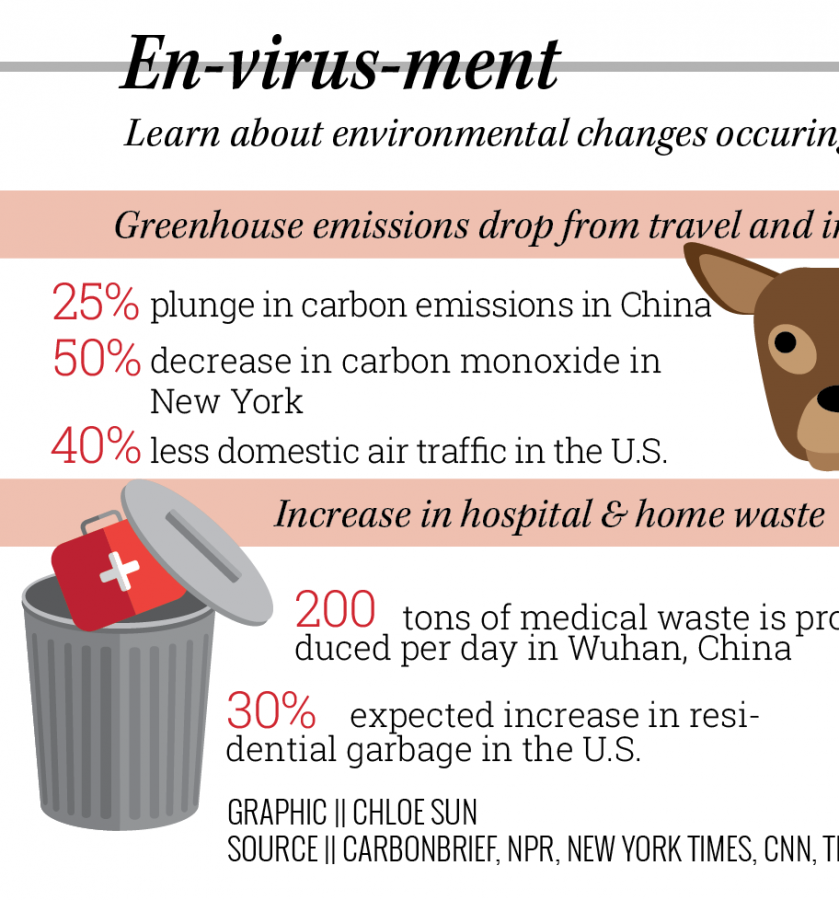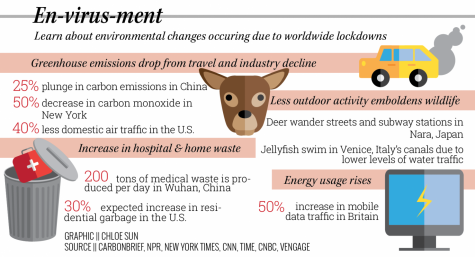Are We the Virus?
As COVID-19 continues to spread, nature returns to some parts of the world
The spread of COVID-19 continues around the world, but although the human populations are facing extreme challenges, the environment is slowly beginning to heal, sparking life into places where it was thought to be lost. The Venice Canals wildlife has returned to the now crystal blue waters. According to CNN, a jellyfish was spotted swimming through Venice’s unusually clean canals after the national lockdown significantly reduced the traffic on the city’s waterways.
In Italy, opening the country back up has begun after the eight-week lockdown in portions of the country. With that occurring, the population begins to return to the streets. Over time, we will be able to see if this lockdown period and return of nature will last or be overrun again by the human population.
“I often tell my students that the ecosystems of the earth are fine without any of us humans, and those systems all know how to recover when a disturbance is gone,” AP Environmental Science teacher Fran Rushing said via email. “I will likely want to talk about the good that has come from this whole adventure; the cleaner, quieter beautiful spaces, the good deeds people did for each other, etc. I always ‘count the happies’ because it feels good, and it helps my students to heal and be more resilient when life does things like what we are living through right now.”
Here in Carmel, students are finding cleaner spaces with fewer people occupying them.
“Around my neighborhood, I have seen less trash in the streets, or when I go on a walk less people are driving their cars but more are outside, it feels almost like opposite day,” sophomore Isabella “Izzy” Herider said.
With fewer people going outside, pollution levels have also been dropping. Around the world, places that have had constant smog have seen a decline of smog and an increase in clean air.
On G-Feed, a blog about global food, environment and economic dynamics, Marshall Burke, an assistant professor at Stanford’s Department of Earth System Science, shared his thoughts on the environment during the coronavirus, stating “The reductions in air pollution in China caused by this economic disruption likely saved twenty times more lives in China than have currently been lost due to infection with the virus in that country.”
Other scientists have stated that the coronavirus could be a major event to begin reversing the damage done to the Earth. Some predict that 2,000 fewer tons of CO2 will be admitted. On Carbon Brief, a site dedicated to improving the understanding of climate change, Dr. Simon Evans said, “The coronavirus crisis could trigger the largest ever annual fall in CO2 emissions in 2020, more than during any previous economic crisis or period of war.”
While these scientists are focusing on the environment and the changes that can be made there, Herider, like many others who have come together during this time of need, chooses to focus on the small changes she can make within her community. “(The program is) through my church. My brother (and I), we help buy groceries for this lady that we sponsor. For those that can’t go out I try my best to help those in need,” she said.



